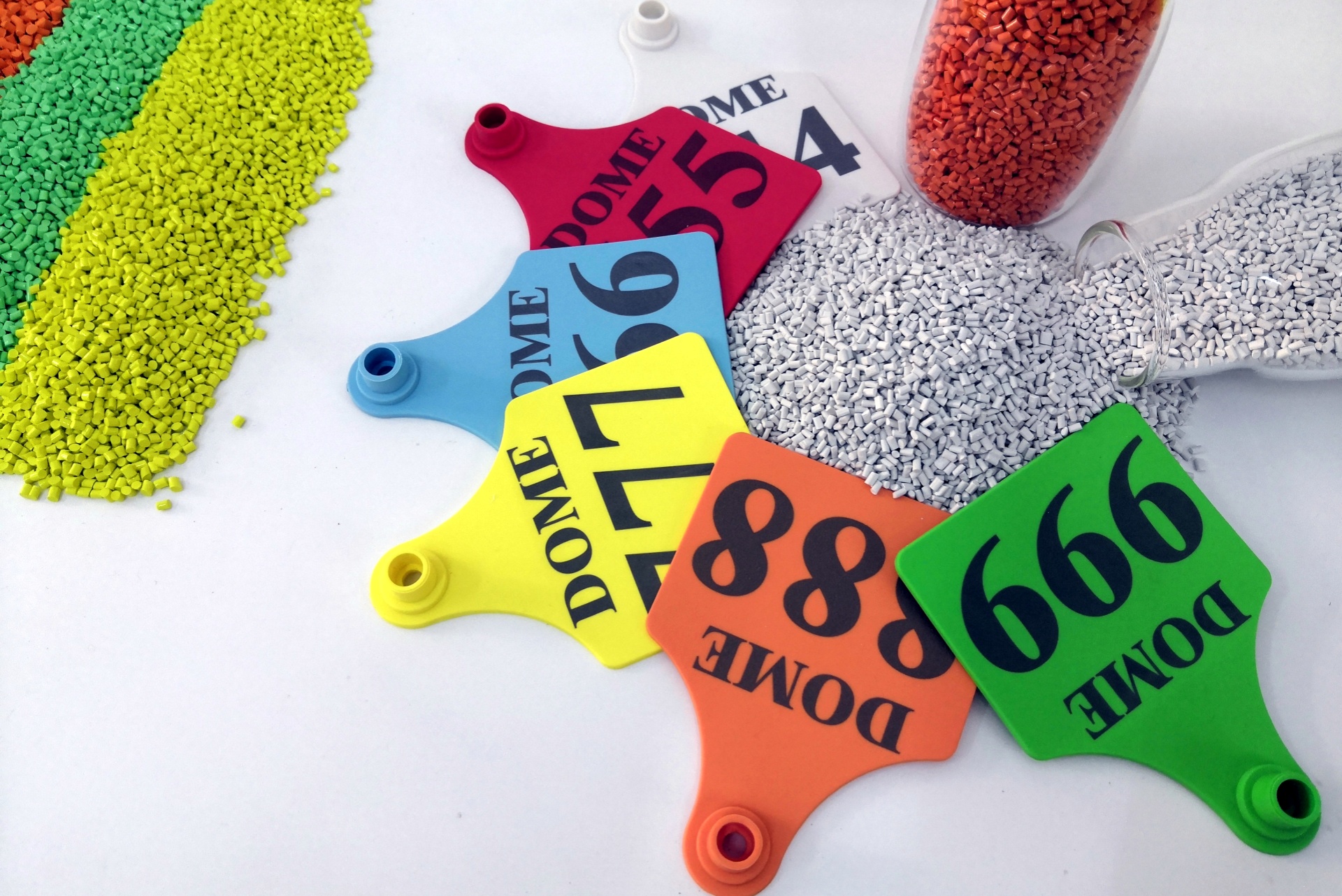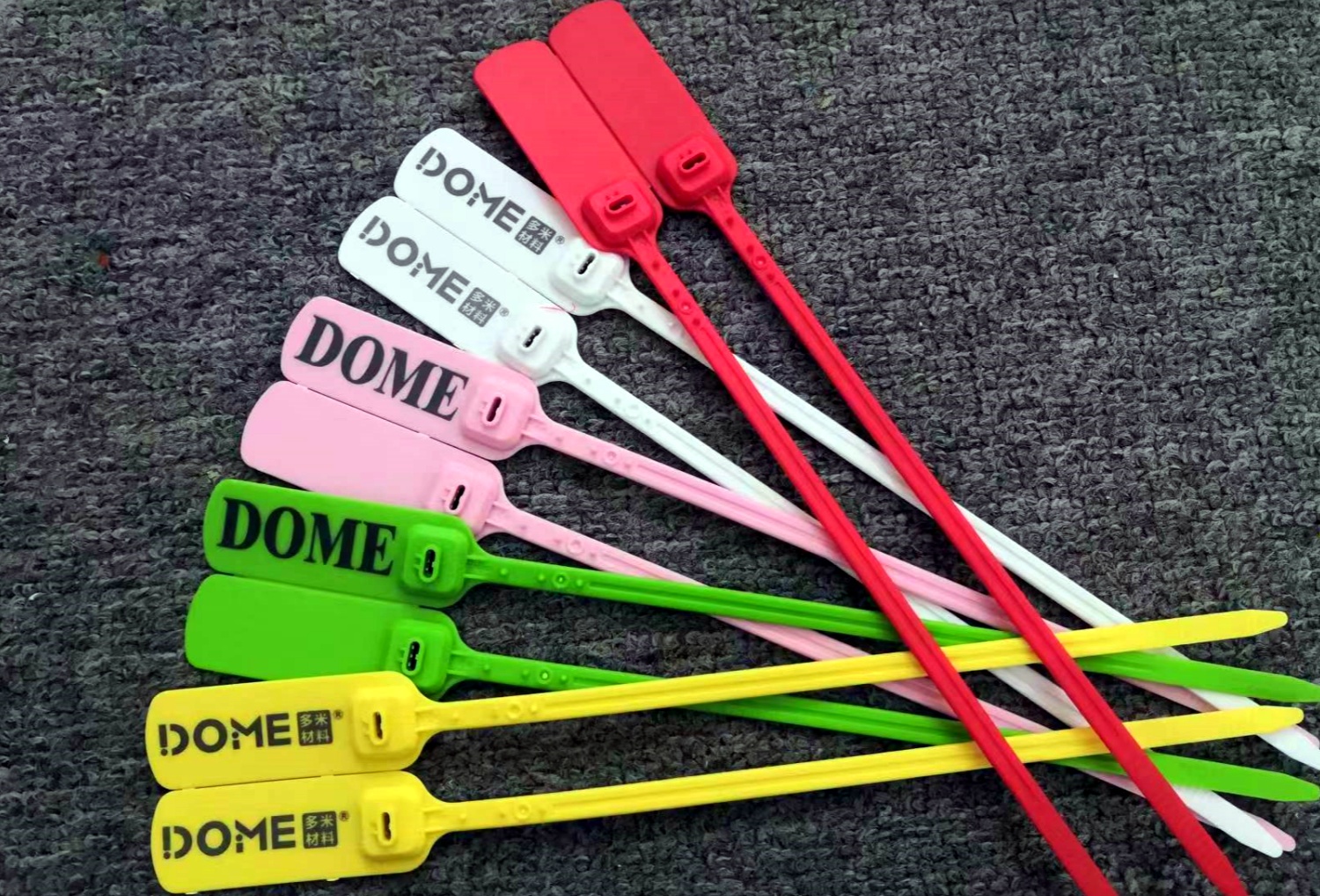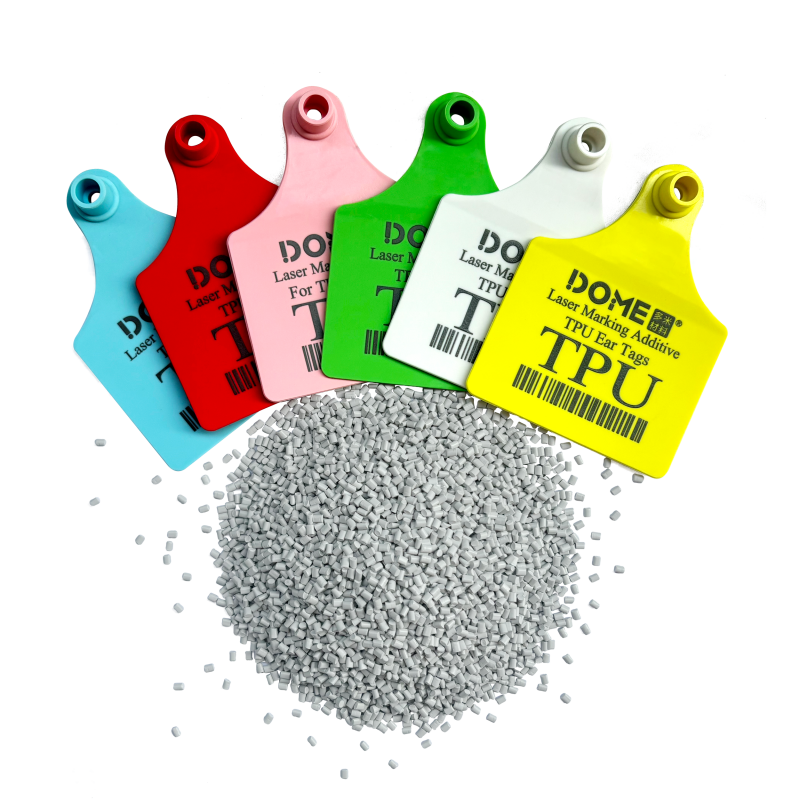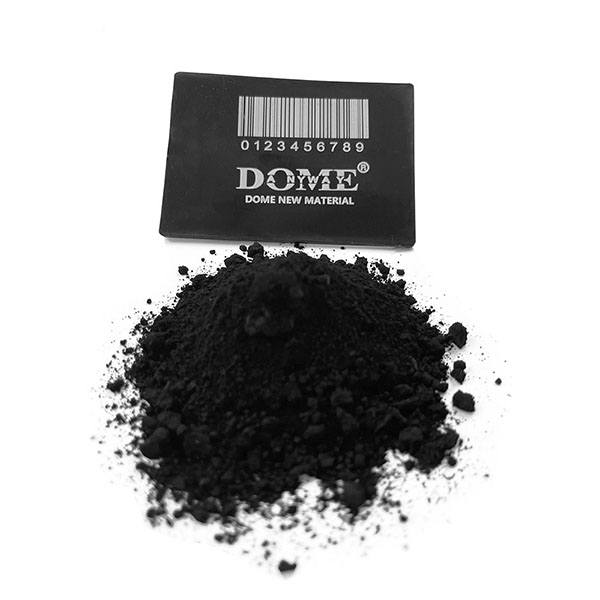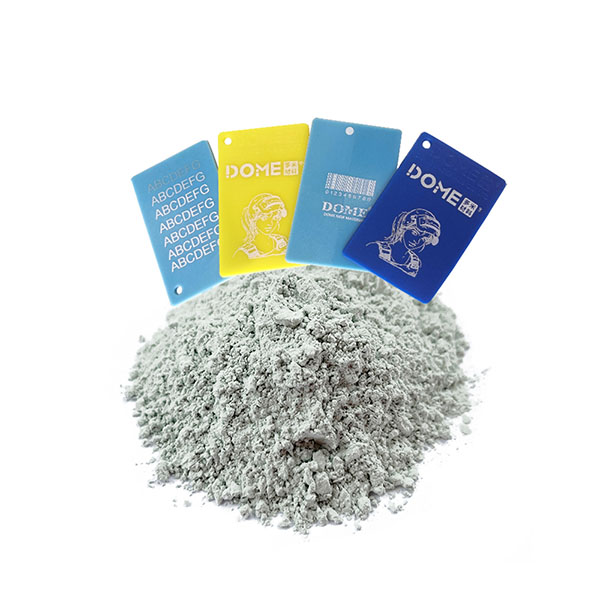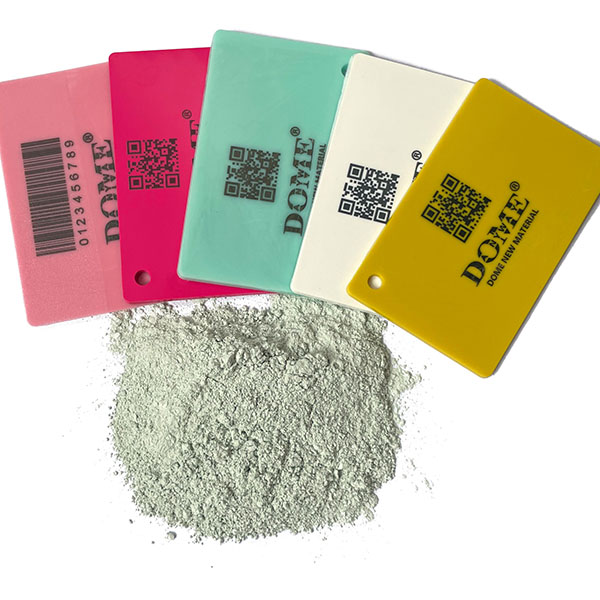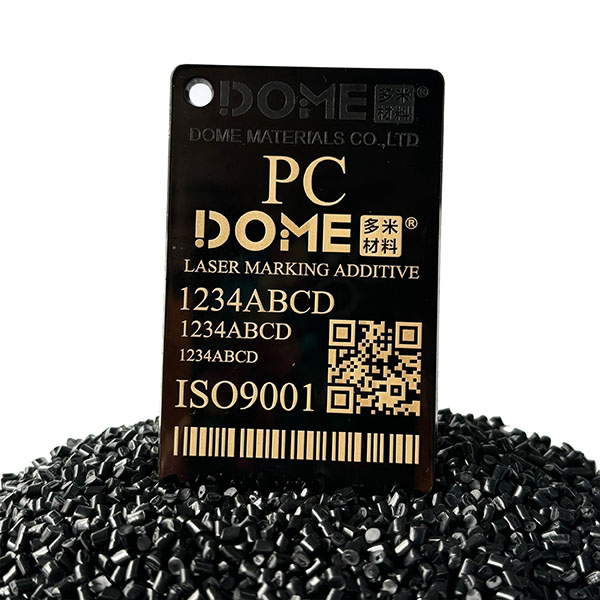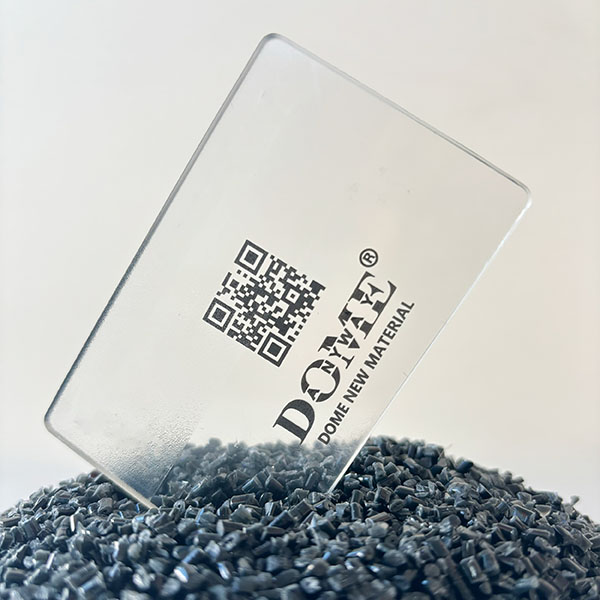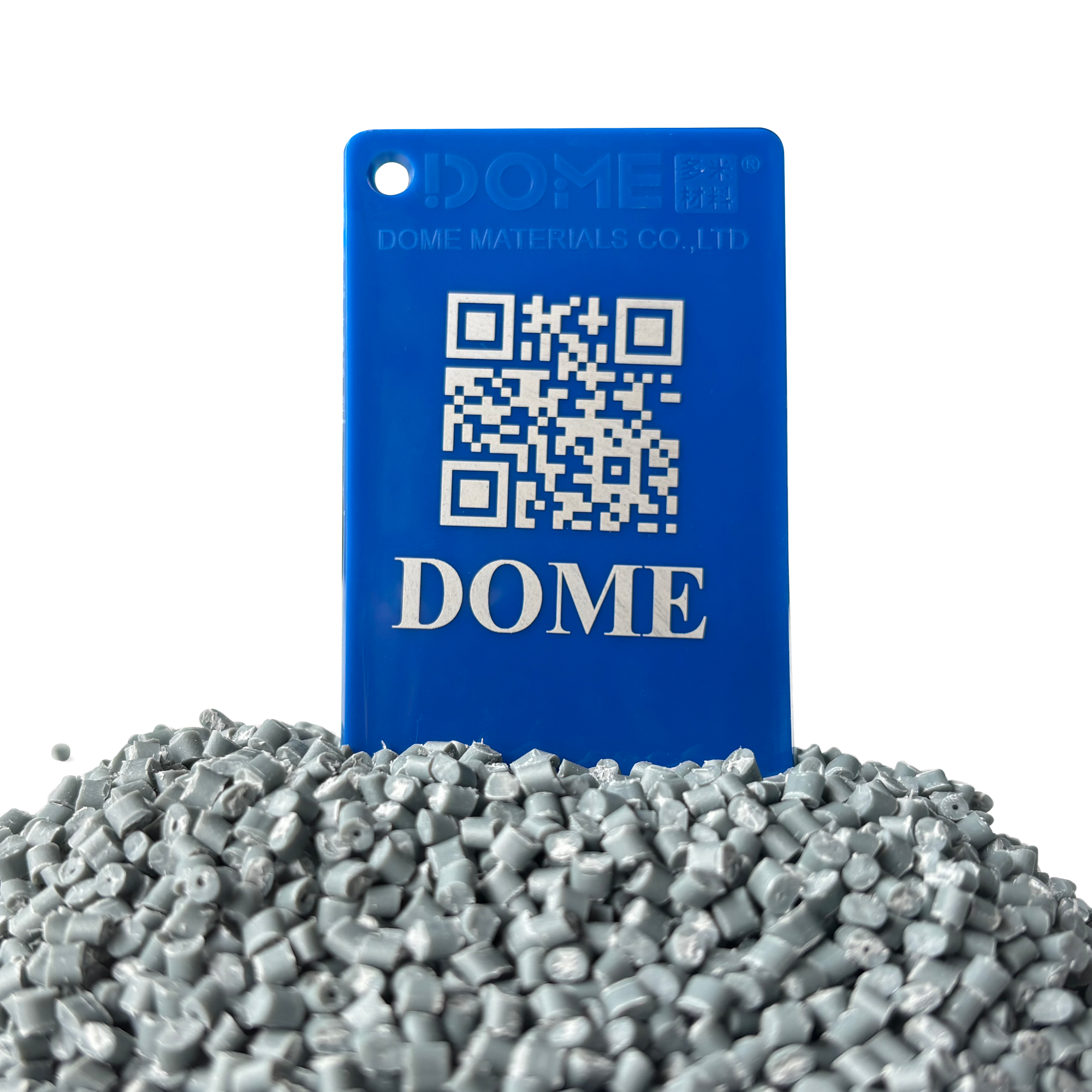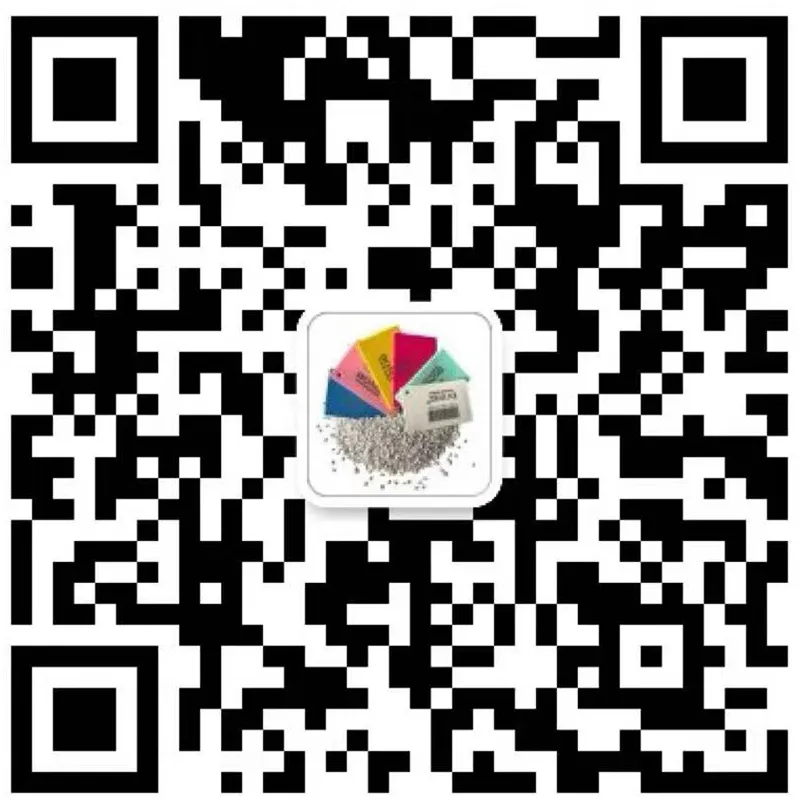Laser marking additives play a vital role in enhancing the quality and durability of markings across various industries. Their ability to improve visibility, ensure compliance, and facilitate traceability makes them essential for effective product identification and management.
In this article, we will explore the essential applications of laser marking additives and the numerous advantages they offer. Discover how these additives can enhance marking quality, boost production efficiency, and broaden the range of materials suitable for laser marking. Whether you’re a newcomer to the industry or a seasoned expert, this comprehensive guide will equip you with valuable insights to elevate your success in the laser marking field.

DOME® laser marking solutions are compatible with a wide range of resin types, including PP (Polypropylene), TPU (Thermoplastic Polyurethane), ABS (Acrylonitrile Butadiene Styrene), PC (Polycarbonate), PA (Polyamide/Nylon), PBT (Polybutylene Terephthalate), PC/ABS Alloy, PE (Polyethylene), POM (Polyoxymethylene/Acetal), TPE (Thermoplastic Elastomer), TPR (Thermoplastic Rubber), PVC (Polyvinyl Chloride), PET (Polyethylene Terephthalate), and PMMA (Polymethyl Methacrylate/Acrylic). These solutions are suitable for various processes such as injection molding, blow molding, and extrusion. They provide durable, easy-to-read markings that resist solvents, oils, and scratches. Additionally, DOME® offers a more sustainable alternative to labels, eliminating the need for consumables like hot foil tapes, inks, or solvents.

Laser marking additives deliver exceptional contrast, ensuring permanent and consistent markings. They also offer precise control when marking polymers, enabling fast and clear results.
When should you consider using laser marking additives? Laser marking additives are ideal for a range of applications, including identification markings, barcodes, and logos. They can also enhance products with decorative elements, making them versatile for both functional and aesthetic purposes. Let’s explore in detail the most common application areas of laser marking additives.
The plastic seal industry is the largest consumer of laser marking additives.
Plastic security seals are tamper-evident devices designed to secure containers and packages, preventing unauthorized access. Widely used in logistics, pharmaceuticals, food and beverage, and retail, they secure shipping containers, trucks, and pallets during transit, ensuring medication packaging remains intact and food packaging is tamper-proof. These seals also help prevent theft in retail settings, maintaining safety and quality across various industries.
Plastic security seals are vital for maintaining the integrity and security of products and packages. Merchants increasingly use advanced laser marking technology to inscribe essential information like QR codes, barcodes, trademarks, and dates on plastic seals, ensuring traceability and anti-tampering features. This precision guarantees detailed markings and enhances product security. To optimize marking speed and contrast, manufacturers often incorporate specialized laser marking additives into the plastic. These additives improve laser light absorption, resulting in sharper, more discernible markings that facilitate easier scanning and verification, thereby bolstering product integrity in the marketplace.

The plastic animal ear tag manufacturing industry is also a major application sector for laser marking additives.
Plastic animal ear tags are widely used identification devices in livestock management, offering a practical solution for tracking and monitoring animals. They are an essential tool for effective livestock management, providing a reliable and cost-effective method for identification and tracking. Their lightweight design, customization options, and ease of use make them a popular choice among farmers and ranchers.
Plastic animal ear tags are lightweight, durable tags attached to the ears of livestock for identification purposes. They are commonly used in various agricultural settings, including cattle, sheep, goats, and pigs. They are usually made from high-quality plastic TPU, these tags are designed to withstand outdoor conditions, including exposure to sunlight, moisture, and wear. It can be custom laser marked with unique identification numbers, barcodes, QR codes, or even logos, allowing for easy recognition and tracking.
Thermoplastic polyurethane (TPU) materials, widely utilized in the production of animal ear tags, inherently possess a limited capacity for absorbing laser light. Consequently, it becomes imperative for manufacturers to incorporate laser marking additives during the injection molding process to enhance the quality of laser marking. This strategic addition facilitates the production of tags that exhibit clear, high-contrast markings and ensures rapid processing times. A notable example of this practice is exemplified by Allflex, one of the world’s largest producers of ear tags, which reportedly utilizes over 30 tons of laser marking additives each year to optimize the visibility and durability of its products. Such measures not only improve the functionality of ear tags but also underscore the importance of innovation within the industry.

Laser marking additives play a crucial role in the wire and cable industry
Laser marking additives are vital in the wire and cable industry, enhancing the quality and durability of markings. Their ability to improve visibility and efficiency makes them an essential component in the production of high-quality wire and cable products.
Laser marking additives are integrated into wire and cable insulation materials to enhance the effectiveness of laser marking. These additives improve the contrast and clarity of markings, which are crucial for identification and traceability. They enable the creation of clear and durable identification markings on wires and cables, including brand names, specifications, and safety information. Additionally, they facilitate the tracking of cables throughout the supply chain, ensuring compliance with industry standards and regulations. Furthermore, these additives allow for the integration of barcodes and QR codes, simplifying scanning and inventory management. Markings made with laser marking additives are resistant to abrasion, chemicals, and UV exposure, ensuring longevity.
Notably, It is essential to ensure that the laser marking additives are compatible with the specific materials used in wire and cable production. Markings must meet industry regulations and standards for safety and identification.
Additionally, we emphasize that in the laser marking of black cables, excessive addition of carbon black can severely affect the quality of the laser marking. Our black laser marking additives contain sufficient carbon black for coloring, allowing them to be used as a direct substitute for black masterbatch.

Laser marking additives are also widely utilized across various industries, including automotive, electronics, medical, and home goods. Here’s an overview of their applications in these sectors:
-
Automotive Industry
Identification and Branding: Used for marking vehicle parts with brand logos, serial numbers, and barcodes for traceability.
Safety Information: Enables clear marking of safety instructions and compliance labels on components.
Durability: Markings are resistant to harsh environmental conditions, including heat, chemicals, and abrasion.
-
Electronics Industry
Component Marking: Essential for marking circuit boards, connectors, and other electronic components with identification numbers and specifications.
Traceability: Facilitates tracking of electronic parts throughout the manufacturing and supply chain processes.
Customization: Allows for the integration of QR codes and barcodes for easy inventory management and product information access.
-
Medical Industry
Patient Safety: Used for marking medical devices and equipment with critical information, such as expiration dates and lot numbers.
Regulatory Compliance: Ensures that markings meet stringent industry regulations for traceability and safety.
Durable Markings: Provides long-lasting markings that can withstand sterilization processes and harsh cleaning agents.
-
Home Goods Industry
Product Identification: Used for marking household items with brand names, product details, and care instructions.
Customization Options: Enables personalized markings on products, enhancing consumer engagement.
Durability: Ensures that markings remain intact despite exposure to moisture, heat, and wear.
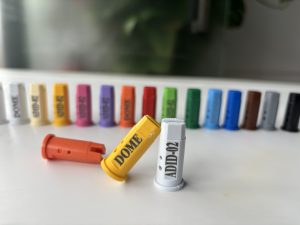
The Key Benefit of Using Laser Marking Additives for Plastics
In the contemporary landscape of manufacturing and product differentiation, the incorporation of laser marking additives in plastics has emerged as a pivotal advancement. These additives, which enhance the interaction between the plastic substrate and laser radiation, produce high-quality markings that are both durable and aesthetically pleasing. The paramount benefit of utilizing laser marking additives lies in their capacity to substantially improve the permanence and clarity of the markings, thereby promoting product integrity and brand recognition.
Primarily, one of the most significant advantages of laser marking additives is their ability to enhance the contrast of markings on various plastic surfaces. By strategically integrating these additives, manufacturers can achieve sharp and defined markings that resist fading over time, even under exposure to harsh environmental conditions. This is particularly critical in industries such as automotive, healthcare, and consumer goods, where the legibility and durability of labels and codes are essential for compliance and traceability.
Moreover, the use of laser marking additives facilitates a more efficient manufacturing process. Unlike traditional marking methods, which often require additional steps such as printing or labels, laser marking allows for direct integration into production workflows. The result is a reduction in operational costs and time, as well as a decrease in material waste. This streamlined approach not only benefits manufacturers economically but also aligns with increasing sustainability goals within the industry.
In conclusion, the incorporation of laser marking additives into plastics represents a significant innovation with critical benefits for manufacturers. Enhanced clarity and permanence of markings not only bolster brand integrity and compliance but also contribute to a more efficient and sustainable production process. As industries continue to evolve, the strategic use of such additives will undoubtedly play a vital role in advancing product marking technologies.

Dome Materials is your trusted supplier and partner for laser marking additives
Dome Materials has established a commendable reputation for its expertise in the development of laser marking solutions tailored to a diverse array of applications, materials, and processes. Our commitment to innovation and quality ensures that we can effectively meet the specific needs of our clients. We invite you to contact us for assistance in selecting the most suitable additive solution, designed to enhance performance and achieve optimal results in your projects. Our team of professionals is dedicated to providing guidance and support, ensuring that you make informed decisions that will elevate your operational efficiency.

